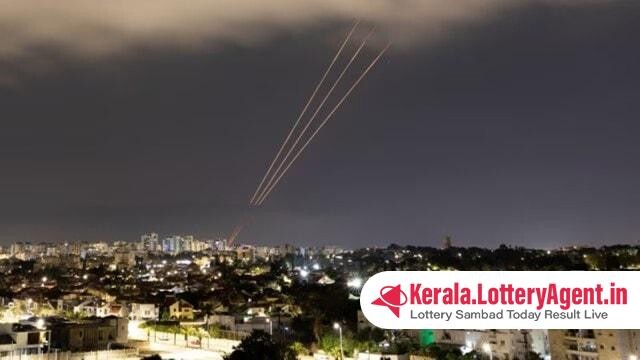
In the wake of the escalating conflict in the Middle East, India is keeping a vigilant eye on the unfolding events, particularly the recent Iranian retaliatory strikes against Israel. This geopolitical tension bears significant implications for India’s trade, primarily concerning oil and other essential commodities. With regional stability hanging in balance, Commerce Secretary Sunil Barthwal shared that India stands ready to employ “remedial measures” to buffer any adverse effects on its trade flows, should the confrontation between Iran and Israel draw out.
In a statement addressing the media and stakeholders, Secretary Barthwal outlined the government’s proactive stance, “Based on the developments, we conduct an internal analysis, and if the Israel-Iran conflict continues for an extended period, we’ll need to assess the necessary steps to be taken. The government remains open to remedial actions, however, our course of action will greatly depend on the progression of the current situation.”
India currently finds itself in a period of observation, scrutinizing the situation closely before making any policy interventions. Barthwal emphasized that interactions with key players such as export promotion councils, container companies, shipping firms, and other relevant ministries are ongoing for a comprehensive internal analysis. “We are in regular communication with export promotion councils, container companies, shipping firms, and other line ministries. These dialogues will inform our analysis and subsequent decisions on tackling potential trade impacts arising from the prolonged conflict,” he reiterated.
The genesis of the present turmoil dates back to April 14 when Iran targeted Israel with a barrage of drones and missiles. This act of aggression was in retaliation for an Israeli assault on Iran’s consulate in Damascus, Syria, a fortnight earlier. The Iranian counterstrike followed a previous incident on April 1, wherein a suspected Israeli attack on a consular edifice in Damascus led to the deaths of 12 people, including a high-ranking general.
India’s link to Iran goes beyond mere diplomatic ties, extending into critical energy interdependencies. Iran ranks as a prominent supplier of crude oil to India, with the larger West Asia region accounting for a whopping 80 per cent of India’s oil imports. While the India has adeptly mitigated oil price shocks stemming from the ongoing Russia-Ukraine war by procuring Russian oil at discounted rates, the recent Middle-Eastern conflict looms as a new threat capable of disrupting energy prices within the domestic market.
The potential impact on oil prices is not to be taken lightly, given that it forms the backbone of India’s energy ecosystem. Should the prices surge as a consequence, it could lead to a ripple effect, impacting various sectors of the economy and the general cost of living. This concern underscores the government’s readiness to pivot, should the need arise, to ensure a continuous and stable supply of commodities.
A close eye must be kept on diplomatic moves and military actions in the forthcoming days and weeks by both the international community and India, as they may serve as a thermometer indicating the likelihood of a protracted conflict. A prolonged altercation could translate into sustained economic tremors beyond the region.
In conclusion, the government’s readiness to take steps towards stabilizing trade indicates a clear understanding of the interconnectedness of international events and domestic welfare. As the situation continues to develop, authorities in India remain prepared to shield the country’s economy from the fallout of distant battlefields. The world watches, hoping for a swift resolution, but India, like many nations, must plan for every eventuality and stand ready to act in its national interest.












